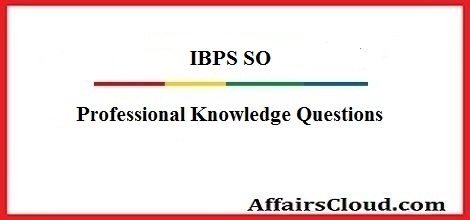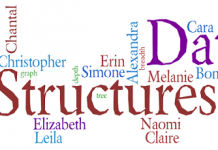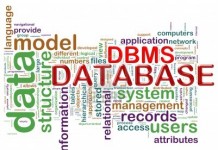Dear Aspirants,
Welcome to the Professional Knowledge Section in Affairscloud.com. Here we are providing sample questions in Computer Networking. It will be useful for the upcoming IBPS SO IT officer and SBI Assistant Manager(System) examinations. We have also included some important questions that are repeatedly asked in previous exams.
Download DBMS Q&A PDF for IT Officers
- What is the default subnet mask for a class B network?
(A) 127.0.0.1
(B) 2550.0.0
(C) 255.255.0.0
(D) 255.255.255.0(C) 255.255.0.0 - What is loopback address?
(A) 127.0.0.1
(B) 255.0.0.0
(C) 255.255.0.0
(D) 127.0.0.0(A) 127.0.0.1 - A central computer surrounded by one or more satellite computers is called a
(A) Bus network
(B) Ring network
(C) Star network
(D) None of these(C) Star network - A networking device that receives a signal on an electromagnetic or an optical transmission medium, amplifies the signal,and then retransmits it along the medium is called
(A) Router
(B) Hub
(C) transmitter
(D) Repeater(D) Repeater - What is the default subnet mask for a class A network?
(A) 127.0.0.1
(B) 255.0.0.0
(C) 255.255.0.0
(D) 255.255.255.0(B) 255.0.0.0 - UTP stands for
(A) Unshielded Twisted Pair
(B) Unshielded Twisted Port
(C) Uniformly Twisted Pair
(D) None(A) Unshielded Twisted Pair - Which of the following organization defines standards for modems?
(A) IEEE
(B) CCITT
(C) BELL
(D) None(B) CCITT - Which topology requires a hub?
(A) Ring
(B) Star
(C) Bus
(D) None(B) Star - Which OSI layer divides a file into segments that are an efficient size for routing?
(A) Transport Layer
(B) Network Layer
(C) Data link Layer
(D) None(A) Transport Layer - FDDI stands for
(A) Fiber Data Distribution Interface
(B) Fiber Distributed Data Interface
(C) Fixed Data Distribution Interface
(D) None(B) Fiber Distributed Data Interface
AffairsCloud Recommends Oliveboard Mock Test
AffairsCloud Ebook - Support Us to Grow
Govt Jobs by Category
Bank Jobs Notification




